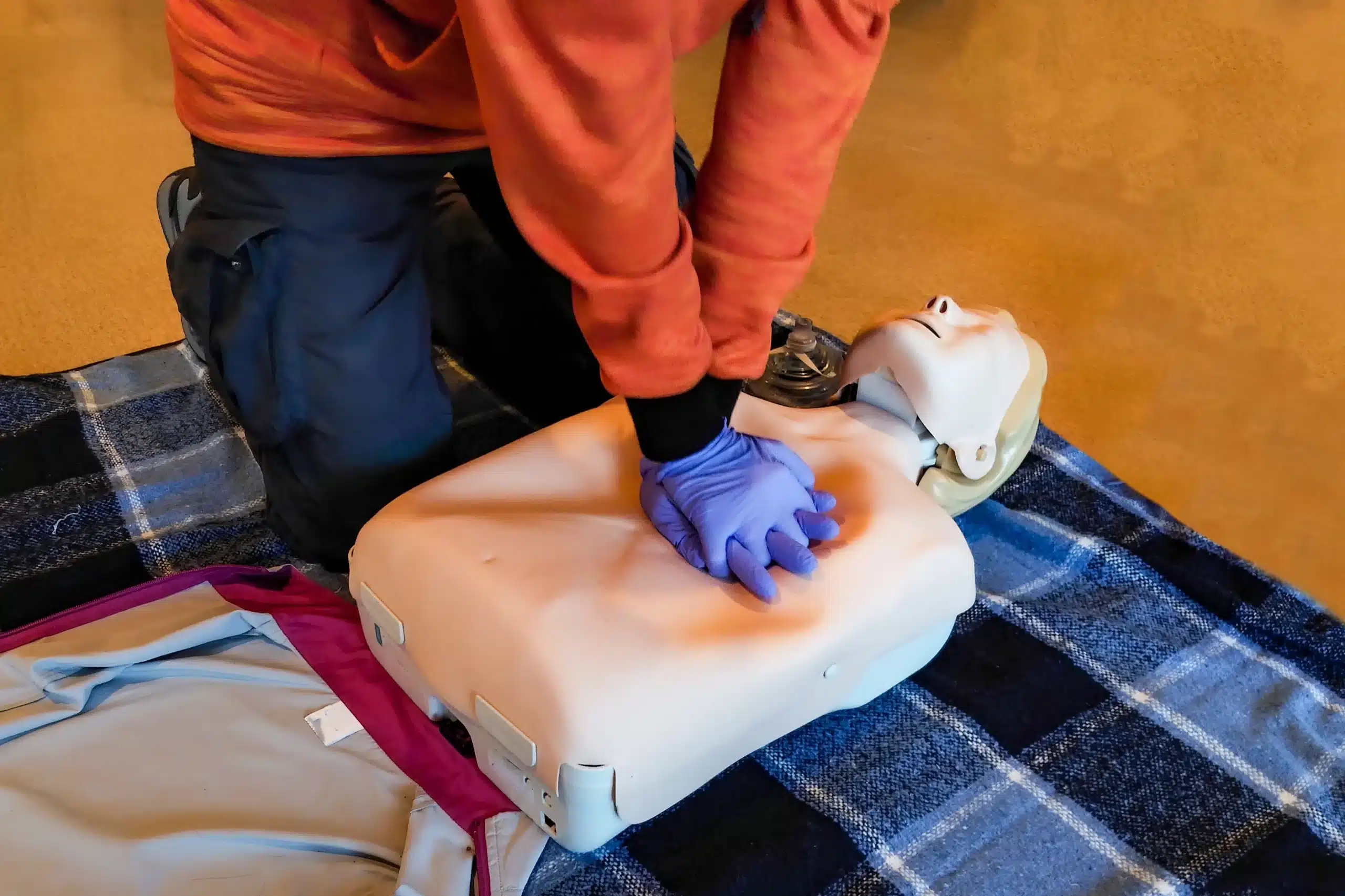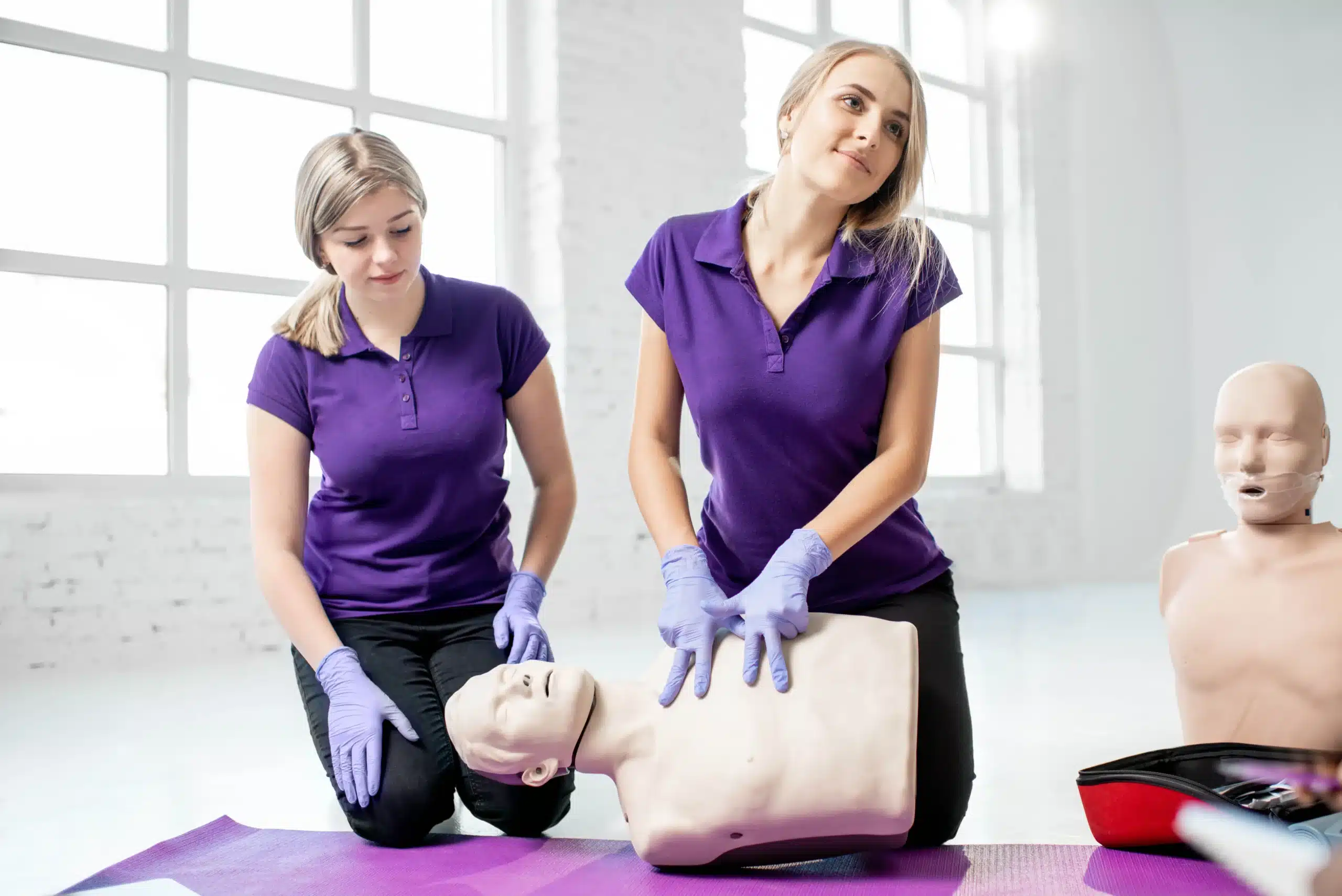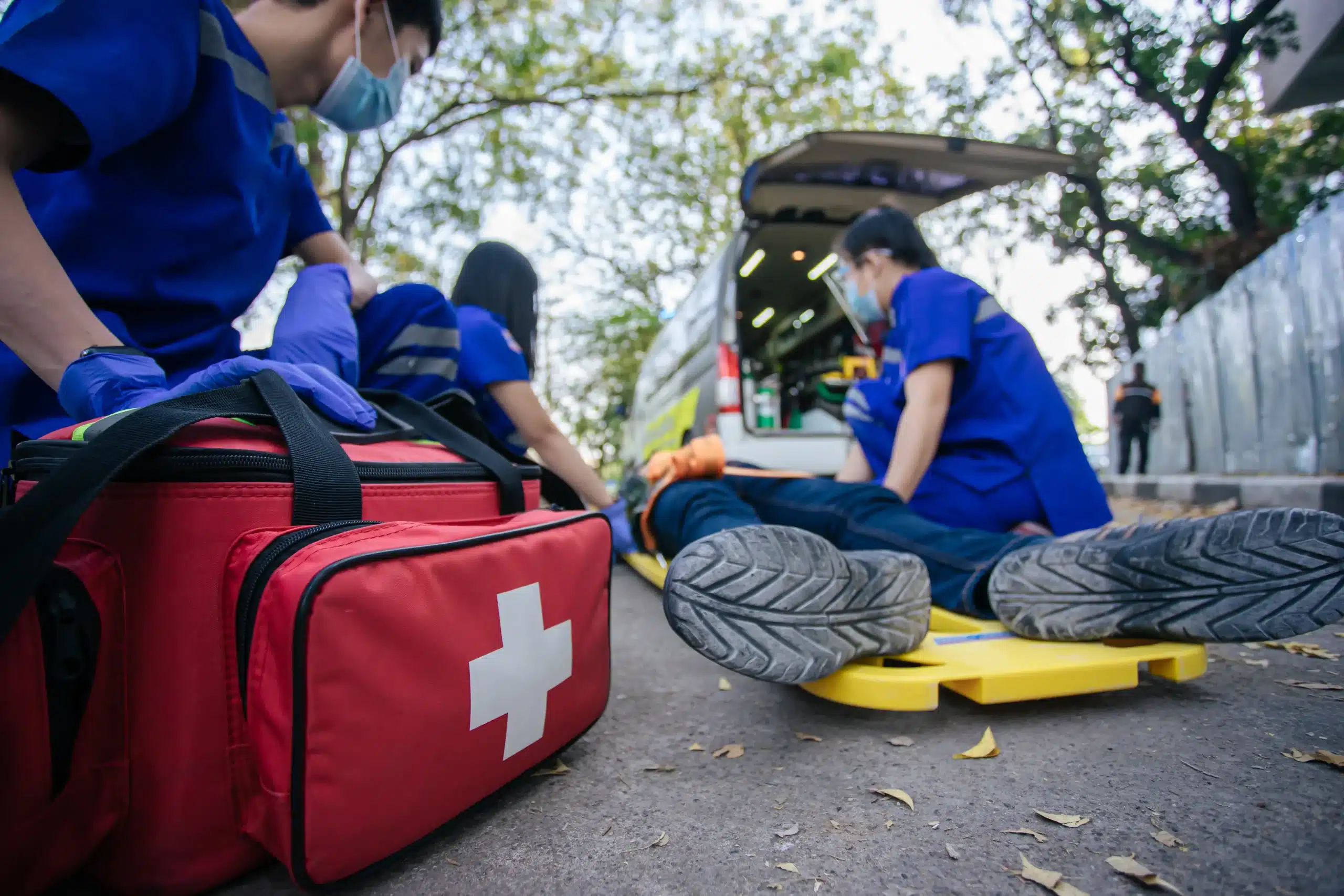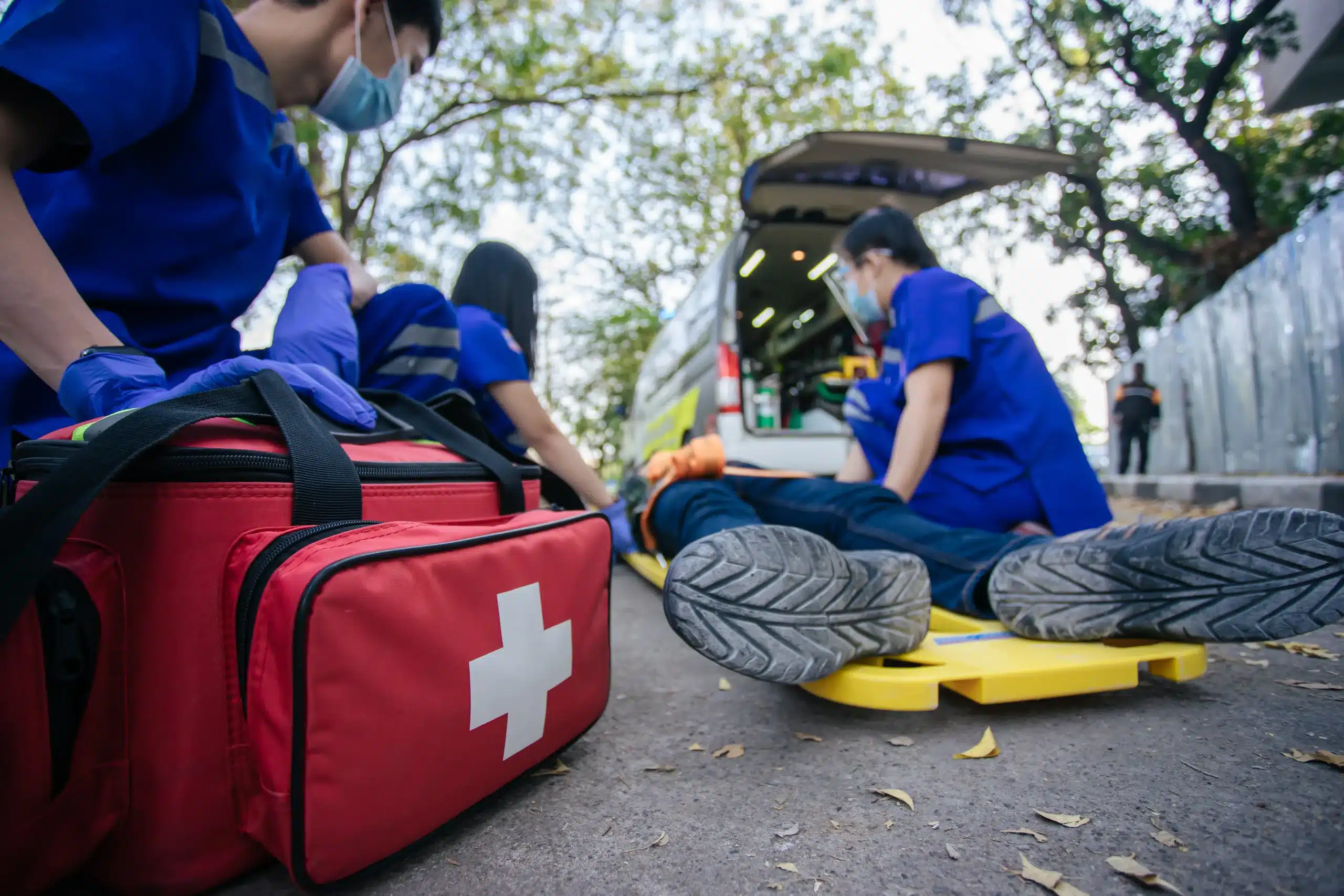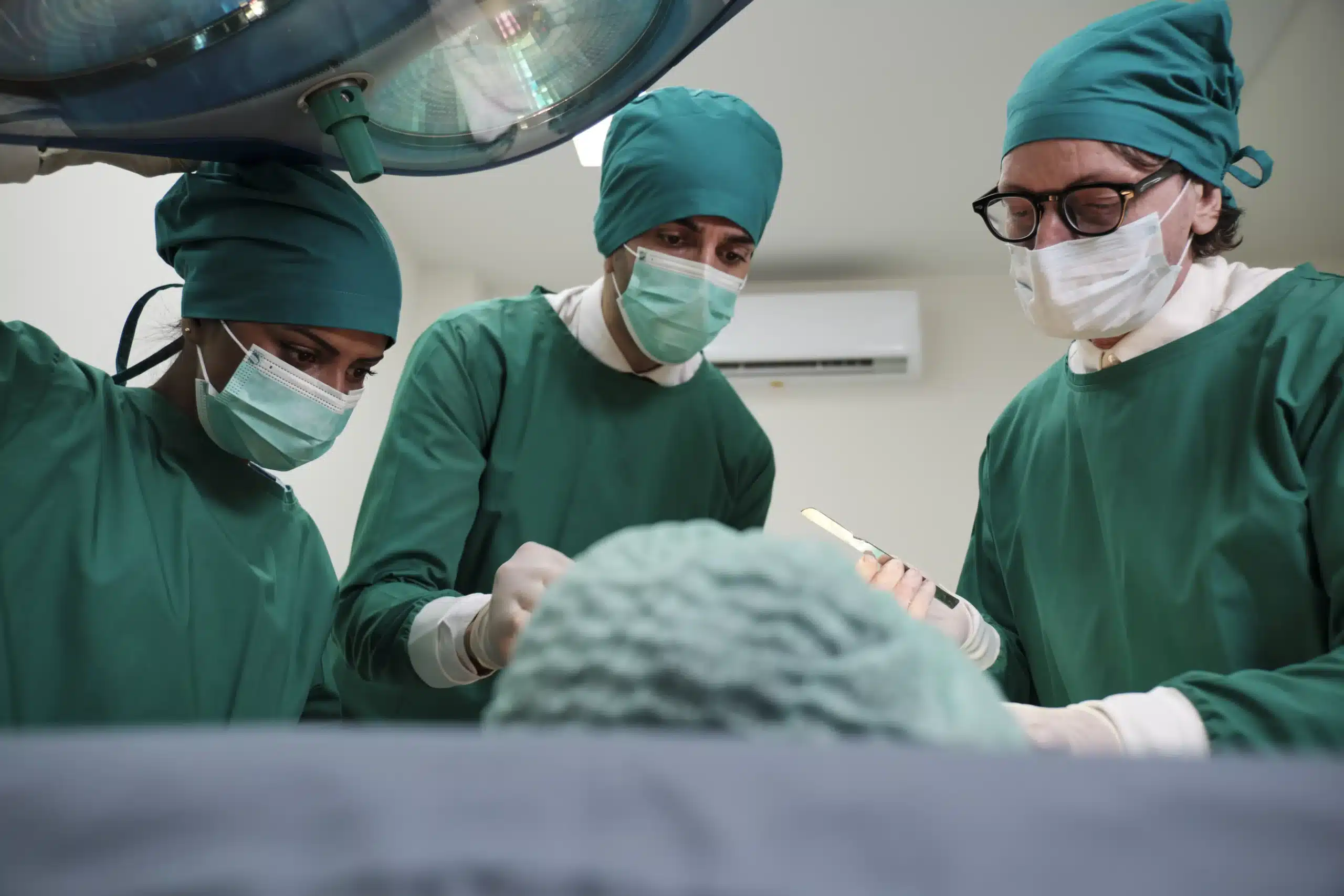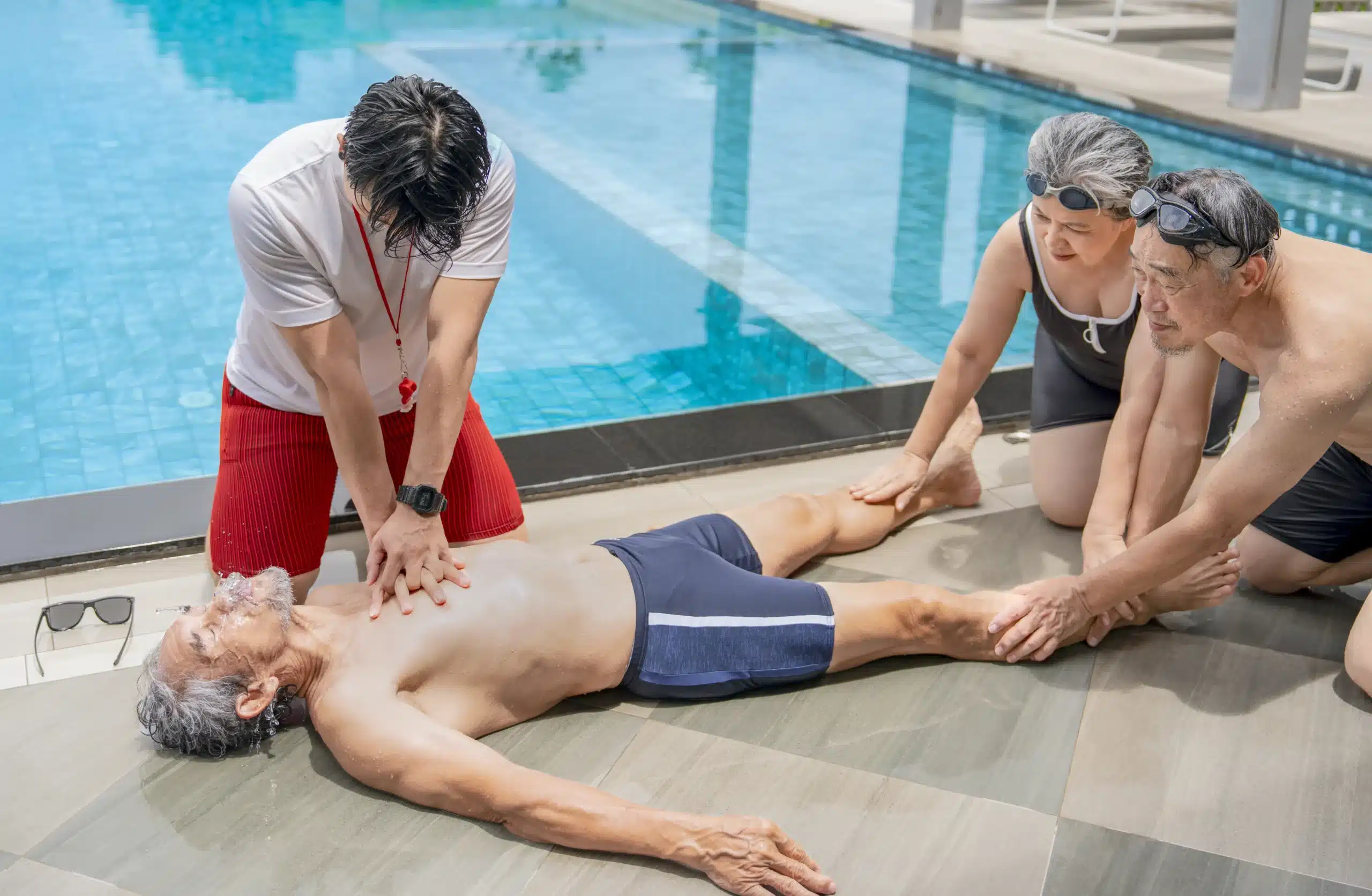Life can throw curveballs, and knowing CPR equips you to handle some of the toughest ones. But just like any important skill, CPR requires regular refreshing to stay sharp. If you’re in the San Jose area and your CPR certification is nearing its expiration date, this guide is your go-to resource for CPR renewal in San Jose. We’ll cover everything from the importance of staying current with your CPR skills to finding the right renewal course for you. We’ll explore the various CPR renewal options available in San Jose, discuss the costs and different learning formats, and even debunk some common myths about CPR recertification. Get ready to empower yourself with the knowledge and confidence to make a real difference.
Key Takeaways
- Regular CPR renewal is crucial for effective emergency response: Staying certified ensures your skills and knowledge are up-to-date, maximizing your ability to provide assistance when it matters most.
- Finding the right CPR class is key: Consider your learning style and schedule when choosing between in-person, online, or blended learning formats. Select a reputable provider like Santa Clara CPR Classes for quality instruction and recognized certification.
- Maintain your CPR skills after renewal: Practice and review are essential for retaining knowledge and confidence. Explore additional training opportunities to stay sharp and prepared for real-world emergencies.
What is CPR Renewal and Why is it Important?
CPR renewal keeps your CPR certification current. Most certifications are valid for two years. After that, you’ll need to renew to ensure your skills and knowledge are up-to-date. Think of it like a driver’s license—you need to renew it periodically. Similarly, renewing your CPR certification demonstrates your continued competence. It’s generally recommended to renew within 30 days of your certification expiring to avoid retaking the entire course. You can find more information on CPR certification validity at CPR1.
Why is staying current so important? Effective CPR can dramatically increase the chances of survival during cardiac arrest. The American Heart Association emphasizes how crucial trained bystanders are in these emergencies. Over time, even practiced skills can fade, and best practices in CPR may evolve. Renewal courses refresh your knowledge and help you maintain the confidence to act quickly and effectively under pressure. The Red Cross also reinforces the two-year validity of certifications and offers renewal courses. Taking a CPR renewal course ensures you’re prepared to provide the best possible care when it matters most.
Best CPR Renewal Classes in San Jose
Finding the right CPR renewal class can feel overwhelming, but several excellent providers in San Jose make the process straightforward. Here’s a closer look at some of your best options:
Santa Clara CPR Classes
Santa Clara CPR Classes offers high-quality, affordable training with convenient schedules and various American Heart Association (AHA)-certified courses, including BLS, ACLS, PALS, and First Aid. Their low price guarantee makes them a smart choice for CPR certification in Santa Clara, Milpitas, and San Jose. Serving the community since 1989, they offer experience and a commitment to customer service. Visit their website for information on class schedules and registration.
American Red Cross
The American Red Cross is a well-known provider of CPR training, emphasizing practical, real-life scenarios in its programs. The Red Cross offers options that cater to different learning styles and schedules. Their long history and scientific advisory council lend credibility to their course offerings.
Emergency and Health Training Center
The Emergency and Health Training Center offers AHA-certified CPR, BLS, ACLS, PALS, and First Aid classes. Their courses are designed for various professions—healthcare, construction, and childcare—as well as the general public. Learn more about their San Jose CPR classes.
CPR Training Center
CPR Training Center provides a range of classes, including BLS, ACLS, PALS, and First Aid, tailored for Santa Clara residents. Their AHA-certified BLS CPR Provider class ensures high-quality training. Explore their BLS CPR class details on their website.
CPR Renewal Costs
CPR renewal costs vary depending on the provider, the type of certification (BLS, ACLS, PALS, etc.), and the class format (in-person, online, or blended). Understanding these factors helps you budget effectively for your recertification.
Typical Prices
Finding affordable, high-quality CPR training is essential. Santa Clara CPR Classes offers competitive pricing on its AHA-certified courses, including BLS, ACLS, PALS, and First Aid. Our Low Price Guarantee ensures you receive excellent value. We strive to make our training accessible to everyone in the Santa Clara, Milpitas, and San Jose areas. Learn more about our courses and pricing on our website.
Discounts and Promotions
Many CPR training providers offer discounts and promotions. Some providers offer discounts for group registrations, making it cost-effective for workplaces or community groups. Student discounts may also be available. Contact providers directly, like Santa Clara CPR Classes, to inquire about current discounts or special offers. This can help you save money while receiving the high-quality training you need. Staying current with your CPR certification is a vital investment.
Choose the Right CPR Renewal Format
Renewing your CPR certification involves a few different learning formats. Each has its own advantages, so consider what works best for your schedule and learning style.
In-Person Classes
In-person CPR classes provide hands-on training and direct interaction with an instructor. These courses cover essential life-saving skills and often meet OSHA requirements, making them suitable for many workplaces. The practical, real-world experience you gain builds confidence and reinforces proper techniques. Practicing skills in a controlled environment is invaluable for many. If you learn best by doing and value direct feedback, in-person training might be your best bet.
Online Courses
Online CPR renewal courses offer flexibility and convenience, allowing you to learn at your own pace and on your own schedule. You can study from anywhere with an internet connection, making it easier to fit CPR training into a busy life. However, it’s important to be aware that online-only CPR training might not satisfy all workplace requirements. OSHA generally doesn’t accept online-only courses for workplace certification, so check with your employer before choosing this option. Online courses can be a great refresher or a good starting point before supplementing with hands-on practice.
Blended Learning
Blended learning combines online learning with in-person skills sessions. This approach lets you study the theoretical parts of CPR online at your own pace, then attend an in-person session to practice your skills and receive feedback from a certified instructor. You get the flexibility of online learning with the hands-on experience of a traditional class. Blended learning is a popular choice for CPR renewal, offering a balanced approach for many learners. This format is also a good option for those recertifying their CPR skills.
When to Renew Your CPR Certification
Knowing when to renew your CPR certification is key to staying prepared for emergencies. Let’s break down the essentials of CPR certification validity and how to plan your renewal effectively.
Certification Validity
CPR certifications, like those offered by the American Heart Association, are typically valid for two years. This timeframe ensures that rescuers maintain up-to-date knowledge and skills. After two years, your certification expires, and you’ll need to renew to continue working in roles requiring valid CPR credentials. Aim to renew within 30 days of your certification’s expiration to avoid retaking the entire course. Keeping track of your expiration date is as important as remembering any other important deadline.
Plan Your Renewal
Don’t wait until the last minute to renew your CPR certification! Planning in advance is the best way to avoid any gaps in your certification. Think of it like renewing your driver’s license—you don’t want it to expire before you get a chance to renew. Even if your renewal date isn’t approaching soon, regularly reviewing core CPR techniques and practicing your skills will keep you sharp and ready to respond. Check out Santa Clara CPR Classes for a convenient schedule of classes and training sessions offered throughout the year to find a course that fits your busy schedule.
Essential CPR Renewal Skills
Your CPR renewal course will cover core skills to help someone experiencing sudden cardiac arrest. These skills are regularly updated based on the latest scientific guidelines, so refreshing your knowledge is crucial. Here’s a breakdown of what you’ll review:
Chest Compressions
Effective chest compressions are the cornerstone of CPR. You’ll practice delivering compressions that are at least two inches deep at a rate of 100–120 compressions per minute. Your instructor will emphasize proper hand placement and body mechanics to minimize fatigue and maximize the effectiveness of each compression, ensuring adequate blood circulation. This hands-on practice builds muscle memory and confidence for real-world scenarios. For more information on CPR basics, review the American Heart Association’s BLS course information.
Rescue Breaths
While compression-only CPR is often sufficient, rescue breaths remain an important skill, especially for children and drowning victims. During your renewal course, you’ll review the proper technique for delivering rescue breaths, ensuring a good seal and visible chest rise with each breath. Understanding when and how to incorporate rescue breaths into your CPR technique can significantly impact a victim’s chances of survival. For further details, explore this article on common CPR myths.
AED Use
Automated External Defibrillators (AEDs) are life-saving devices found in many public places. Your CPR renewal training will cover how to quickly and correctly use an AED. You’ll learn to recognize the visual and audio prompts that guide you through each step, from attaching the pads to delivering the shock. This practical experience demystifies AED operation and prepares you to act decisively in an emergency. Consider our RQI classes for more in-depth AED training.
Recognizing Cardiac Arrest
Early recognition of cardiac arrest is vital. Your renewal course will reinforce the key signs of cardiac arrest, such as sudden collapse, unresponsiveness, and the absence of normal breathing. You’ll also learn to differentiate between cardiac arrest and other medical emergencies, enabling you to respond appropriately and activate emergency medical services without delay. For further information on recognizing cardiac arrest, consult this helpful resource.
CPR Team Dynamics
In many professional settings, CPR is a team effort. Your renewal course will often cover team dynamics, emphasizing the importance of clear communication, designated roles, and coordinated action during a resuscitation attempt. This training helps ensure a smooth and efficient response, maximizing the chances of a positive outcome. Contact us to discuss team-based CPR training options.
CPR Renewal Myths
Let’s clear up some common misconceptions about CPR renewal. These myths can prevent people from getting the life-saving training they need.
“Once Certified, Always Certified”
This is absolutely false. CPR guidelines and techniques are updated regularly to reflect the latest scientific research and best practices. Renewing your CPR certification ensures you’re using the most effective methods. Think of it like software updates—you need to install them to keep everything running smoothly. Your CPR skills need refreshing, too.
“Online Training is Enough”
While online CPR courses offer a convenient way to learn the basics, they often fall short when it comes to hands-on practice. Effective CPR requires muscle memory and the confidence that comes with performing compressions and rescue breaths on a manikin. In-person training provides this crucial experience.
“CPR is Only for Medical Professionals”
Anyone can learn CPR, and everyone should. You don’t need to be a doctor or nurse to save a life. From parents and teachers to coaches and construction workers, CPR skills are invaluable. Check out our course schedule to find a class that fits your needs.
“CPR Certification is Mandatory”
While CPR certification isn’t legally required to perform CPR in an emergency, it is strongly recommended. Proper training gives you the skills and confidence to act quickly and effectively when it matters most. Learn more about our low price guarantee.
“CPR is Too Hard”
CPR isn’t about complicated medical procedures. It’s about learning a straightforward set of techniques that anyone can master with the right instruction. Our experienced instructors at Santa Clara CPR Classes make learning CPR easy and accessible.
Choosing a CPR Renewal Provider in San Jose
Finding the right CPR renewal provider can feel overwhelming with so many options available. This section breaks down the key factors to consider, helping you make an informed choice for your CPR recertification.
Factors to Consider
-
Accreditation and Recognition: Confirm that the provider offers certifications recognized by your workplace or governing body. For healthcare professionals, certifications from organizations like the American Heart Association (AHA) are often required. Santa Clara CPR Classes, for example, offers a range of AHA-certified courses, including BLS (BLS) and ACLS (ACLS), ensuring your certification meets professional standards.
-
Course Content and Curriculum: A comprehensive CPR renewal course should cover essential skills like chest compressions, rescue breaths, AED use, and recognizing cardiac arrest. Look for providers that align with the latest AHA guidelines to ensure you’re learning up-to-date techniques. Consider also if you need additional certifications like RQI (RQI Classes).
-
Instructor Expertise: Experienced and certified instructors are crucial for effective CPR training. Check the provider’s website or inquire about the instructors’ qualifications and experience. A knowledgeable instructor can provide valuable guidance and feedback during your renewal course.
-
Class Size and Format: Consider whether you prefer a smaller class setting for more personalized attention or a larger group environment. Also, think about the course format: in-person, online, or blended learning. Santa Clara CPR Classes offers various class formats to accommodate different learning styles and schedules. Contact them for more information (Contact Us).
-
Convenience and Location: Choose a provider with a convenient location and class schedule. If you’re in the San Jose area, Santa Clara CPR Classes offers classes in Santa Clara, serving nearby cities like Milpitas and San Jose. Their convenient location and daily availability make scheduling your renewal easier.
-
Cost and Value: Compare the costs of different providers, but don’t let price be the sole deciding factor. Consider the value you’re receiving in terms of course content, instructor expertise, and certification recognition. Santa Clara CPR Classes offers a Low Price Guarantee (Low Price Guarantee), ensuring you get quality training at a competitive price.
Compare Top Providers
Here’s a quick comparison of some reputable CPR renewal providers in San Jose:
-
Santa Clara CPR Classes: Known for their long-standing experience since 1989 and commitment to customer service. They offer a variety of AHA certification courses, including BLS, ACLS, PALS, and First Aid, with convenient schedules and a Low Price Guarantee.
-
American Red Cross: A well-established organization offering a range of CPR and First Aid courses. Check their website for class schedules and locations in San Jose.
-
Other Local Providers: Research other training centers and community organizations in San Jose that offer CPR renewal courses. Look for providers with positive reviews and a focus on quality instruction. Reading online reviews can offer valuable insights from past participants.
Stay CPR Ready After Renewal
Get Your Updated Certification
CPR is a life-saving skill, but certifications don’t last forever. They’re typically valid for two years. After that, you’ll need to renew your CPR certification to stay current. This usually involves refresher courses and a skills test, ensuring you’re ready to respond effectively in an emergency. Think of it like a driver’s license—you need to renew it periodically to keep driving legally. Similarly, renewing your CPR certification keeps your skills sharp and your qualifications up-to-date. Whether you choose the American Heart Association or Red Cross for your training, make sure you find a program that fits your schedule and learning style. Santa Clara CPR Classes offers a variety of courses and flexible scheduling to make the process convenient.
Use Your Skills
Getting recertified isn’t just about checking a box; it’s about truly being prepared to help in a crisis. Studies show that effective bystander CPR can dramatically increase survival rates during cardiac arrest. But like any skill, CPR techniques can fade over time. Regular practice and renewal are key to maintaining those life-saving abilities. Look for opportunities to refresh your knowledge. Consider volunteering at community events that might require CPR-trained personnel. Even discussing different scenarios with fellow certified individuals can help keep the information fresh in your mind. The more you engage with your CPR skills, the more confident and prepared you’ll be when faced with a real-life emergency. Remember, knowing CPR can significantly impact someone’s chances of survival, so staying ready is a responsibility we take seriously at Santa Clara CPR Classes.
Related Articles
- CPR Renewal in Santa Clara: Your Easy Guide – Santa Clara CPR Classes
- CPR Certification in San Jose: A Complete Guide
- Why CPR Matters in Healthcare – Santa Clara CPR Classes
- ACLS Renewal San Jose: Your Complete Guide – Santa Clara CPR Classes
- Your Guide to First Aid Training in San Jose – Santa Clara CPR Classes
Frequently Asked Questions
How long is CPR certification valid? CPR certifications are typically valid for two years. It’s a good idea to renew within 30 days of the expiration date to avoid retaking the entire course.
What’s the difference between online and in-person CPR renewal? Online renewal offers flexibility, letting you learn at your own pace. However, in-person classes provide hands-on practice and direct instructor feedback, which many find beneficial for building confidence and mastering the techniques. In-person training is often required for workplace certification.
How much does CPR renewal cost? Costs vary based on the provider, the type of certification (BLS, ACLS, PALS, etc.), and the class format. Check with different providers like Santa Clara CPR Classes or the American Red Cross for their pricing. Many offer discounts for groups or students.
What key skills are covered in a CPR renewal course? Renewal courses cover essential skills like chest compressions, rescue breaths, AED use, and recognizing the signs of cardiac arrest. They also often review team dynamics for those who might perform CPR in a professional setting.
How do I choose a CPR renewal provider? Look for a provider with recognized accreditation, a comprehensive curriculum, experienced instructors, and a convenient location and schedule. Consider factors like class size and format (in-person, online, or blended) to find the best fit for your learning style. Compare costs and read reviews to ensure you’re getting good value for your money.

